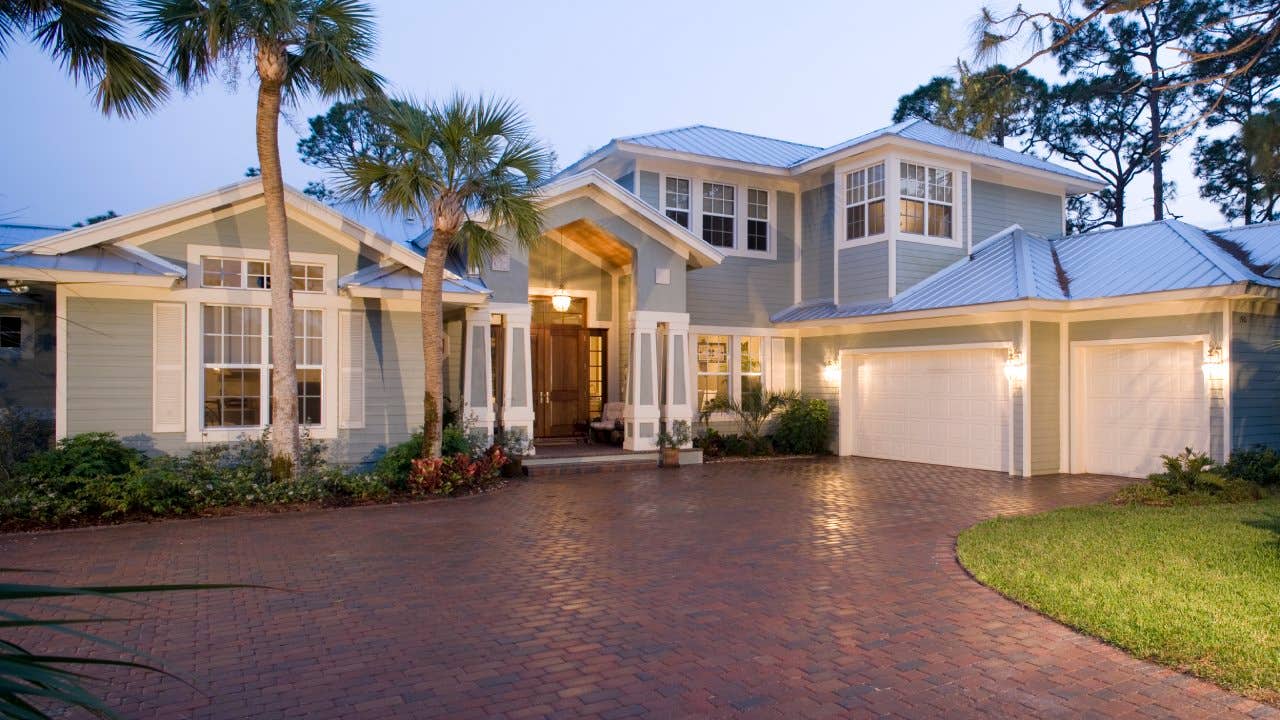Cost of selling a house in Florida

You’ve prepared your Florida home for the market, hosted showings, found a buyer and are finally ready to sell. But before you get too excited about the profit you’ll take in, make sure you understand how much the transaction will cost you.
Selling a house comes with plenty of associated expenditures, so you’ll need to tally up all the closing costs and related expenses before you know how much you’ll actually earn on the sale. Read on for everything you need to know about the cost to sell a house in Florida.
Sellers’ closing costs
Typically, buyers pay the bulk of the closing costs on a home sale. However, home sellers must foot some of the bill too. Closing costs for sellers can include any or all of the following:
- Escrow fees: Most financing-related fees fall to the buyer, but sellers are often responsible for at least some amount of escrow fees. These can range from a few hundred dollars to $1,000.
- Title costs: Sellers in Florida usually foot the bill for a title insurance policy, which could cost between 0.5 percent and 1 percent of the sale price. The median sale price for a Florida home in July 2023 was $404,100, according to Redfin, so 1 percent of that would be $4,041. The fee for a title search, which ensures that your home has no other claims against it, is much cheaper: usually between $75 and $100.
- Documentary stamp taxes: Commonly known as a transfer tax in most states, Florida’s documentary stamp tax (or “doc stamp”) is a one-time cost to transfer the ownership of the property. In Miami-Dade County, the rate is 0.6 percent for transfers of single-family residences. In all other Florida counties, the rate is 0.7 percent. On a median-priced $404,100 home, 0.7 percent is $2,828.
- Legal fees: Florida does not require home sellers to hire a lawyer. However, for a transaction this important, it’s a good idea to work with a real estate attorney anyway — their fee will be due at closing.
- Property taxes and HOA fees: Sellers are responsible for any applicable property taxes and HOA fees up until closing day. For example, if you close your sale on the 14th of the month, you’ll be charged for 14 days’ worth of property taxes and HOA fees.
- Seller concessions: During negotiations, many sellers agree to offer concessions to help cover the buyer’s closing costs. In this case, the amount is due at closing.
Real estate agent commissions
Your biggest expense will not be a closing cost like the kind listed above, though, but the real estate agents’ commissions. These are typically paid by sellers, and while they can often be negotiated, they tend to run from 5 to 6 percent of a home’s sale price — which can be a hefty sum.
On a median-priced $404,100 Florida home, 5.5 percent equates to $22,225. But keep in mind that certain areas may be much more (or less!) than the statewide median. In Miami, where the median is a much higher $579,500, 5.5 percent is $31,872. And in Jacksonville, which has a much lower median of $305,000, it adds up to $16,775.
Preparing your home for sale
Don’t forget that you may also need to shell out some money to prepare your home for the market. You want it to be in the best possible condition to attract buyers, which likely means addressing visible problems like chipped tiles or dripping faucets. First impressions matter, and even minor details like mowing the lawn or adding flowers to your porch can boost your home’s curb appeal.
Experts also recommend that you deep-clean your house to make it as appealing as possible. If it’s too big of a job to do on your own, a professional will cost around $300, according to Fixr.
Many homes can benefit from professional staging, or hiring a decorator to make it more appealing. This can really make your home stand out to buyers, especially if it’s dated or cluttered (or empty because you already moved out). Ask your Realtor if it’s worth paying for home staging before you list your property — it can cost a couple thousand dollars, but it also might help you sell for a higher price.
Moving costs
As you run the numbers, don’t forget to factor in moving costs. The price of relocating your belongings will vary greatly based on the size and weight of your items and the distance you’re moving. HomeAdvisor reports that the cost of hiring professional movers and a truck averages $1,709. The cost will be more if it’s a long-distance trek, though.
How much do I get from selling my house?
Your net proceeds — the total sum you’ll pocket from the sale after deducting all of the costs — will vary depending on all the above factors. All these costs eat away at the chunk of cash you’ll receive when the sale has closed. To calculate your net proceeds, subtract the total cost of your sale from the price that your buyer is paying. Remember to consider the amount you’ll need to pay off your mortgage, if applicable. And if you’re pulling in a very large profit, you may need to consider capital gains taxes as well.
Reducing costs
This roster of expenses might feel intimidating. Luckily, there are ways to help reduce your costs:
- Work with a proven local real estate agent: An experienced agent who knows your market well can help you negotiate the best possible deal.
- Negotiating commission: Commissions are negotiable, too, so see if your agent might agree to reduce their commission.
- Cut your moving costs: Getting rid of what you don’t need and enlisting friends to help with the rest can save a lot of money over paying professional movers.
- Sell as is: If you don’t want to pay for cleaning, staging or even minor repairs, consider selling the home in as-is condition. This lets buyers know that what they see is what they get, and that nothing will be fixed for them.
Alternatives
There are selling alternatives that can also save you from paying a Realtor’s commission:
- Cash homebuyers or iBuyers: There are many companies in Florida that buy homes directly from the owner. Selling a home this way is fast and convenient, and while it spares you from the real estate commissions, it will not earn you as high a price as a Realtor could.
- FSBO: “For sale by owner” transactions also avoid having to hire (and pay for) an agent. The drawback is that you must assume all the work an agent would otherwise do, and all logistics of the transaction. It’s a big commitment.
- Home equity or renting: If you need cash, you might be able to leverage your equity with a home equity loan or HELOC rather than selling it. Or, if you’re able to keep the house, renting it out can provide a source of passive income.
Next steps
Ready to sell your house? If you’re going with a traditional sale rather than a homebuying company, then it’s time to find an experienced local real estate agent who can guide you to a smooth transaction. Agents have valuable insights into their local markets, and one who knows your corner of Florida well can play an invaluable role in helping you to get the deal you want.
FAQs
-
Redfin data shows that the median sale price of a Florida home, as of July 2023, was $404,100. Your biggest expense for a sale of that price will be the Realtors’ commissions, which could come out to more than $22,000. Other sellers’ closing costs can vary greatly, but between home prep and miscellaneous fees, it could tack on another $10,000 or so. That would leave you with a total bill of more than $32,000, which would come out of your proceeds at closing.
-
Yes. In most cases, Florida home sellers pay transfer taxes, which are known in the state as documentary stamp taxes or “doc stamp.” This fee will run either 0.6 or 0.7 percent of the home’s sale price, depending on which county you’re in.
Why we ask for feedback Your feedback helps us improve our content and services. It takes less than a minute to complete.
Your responses are anonymous and will only be used for improving our website.






